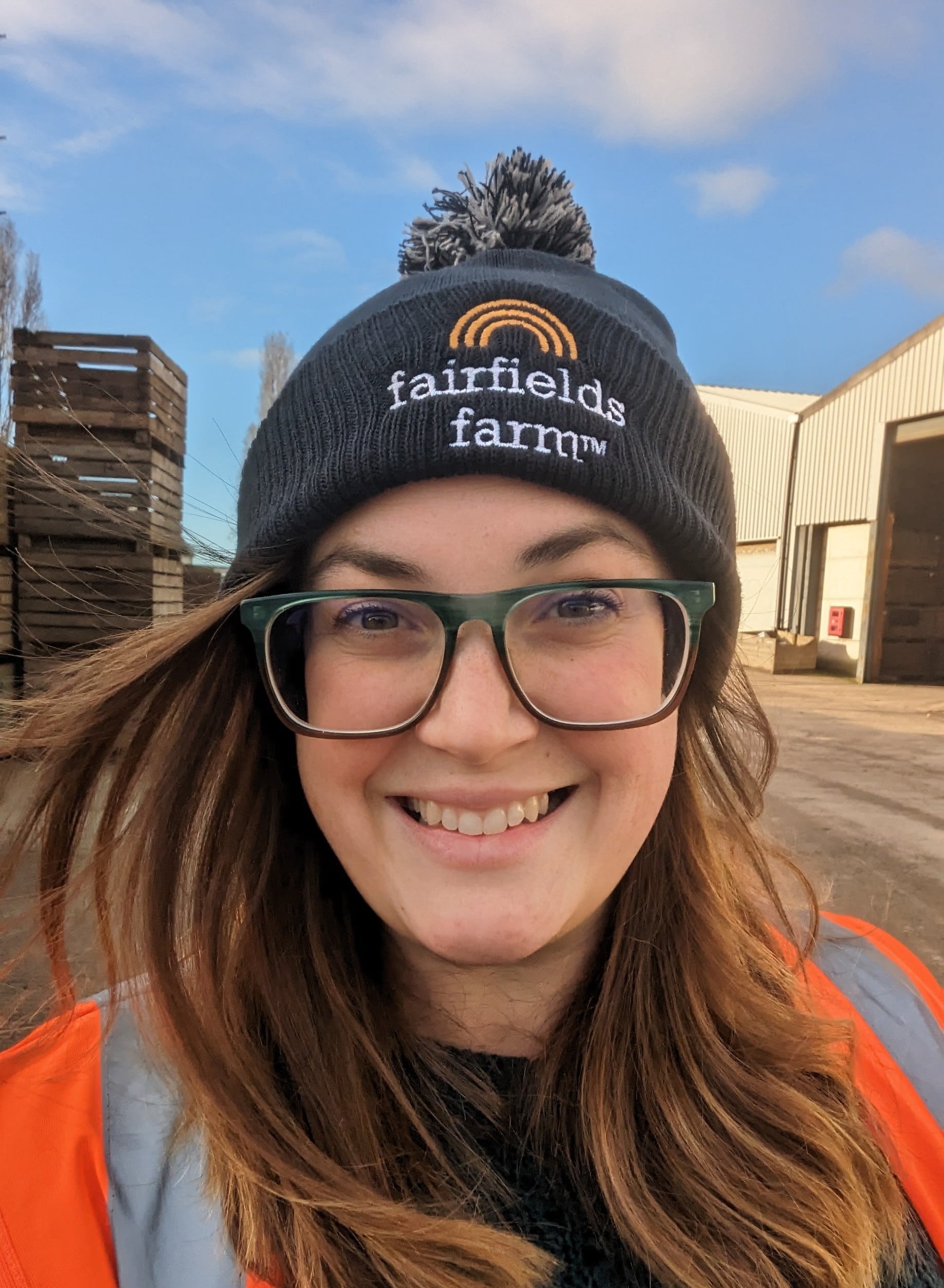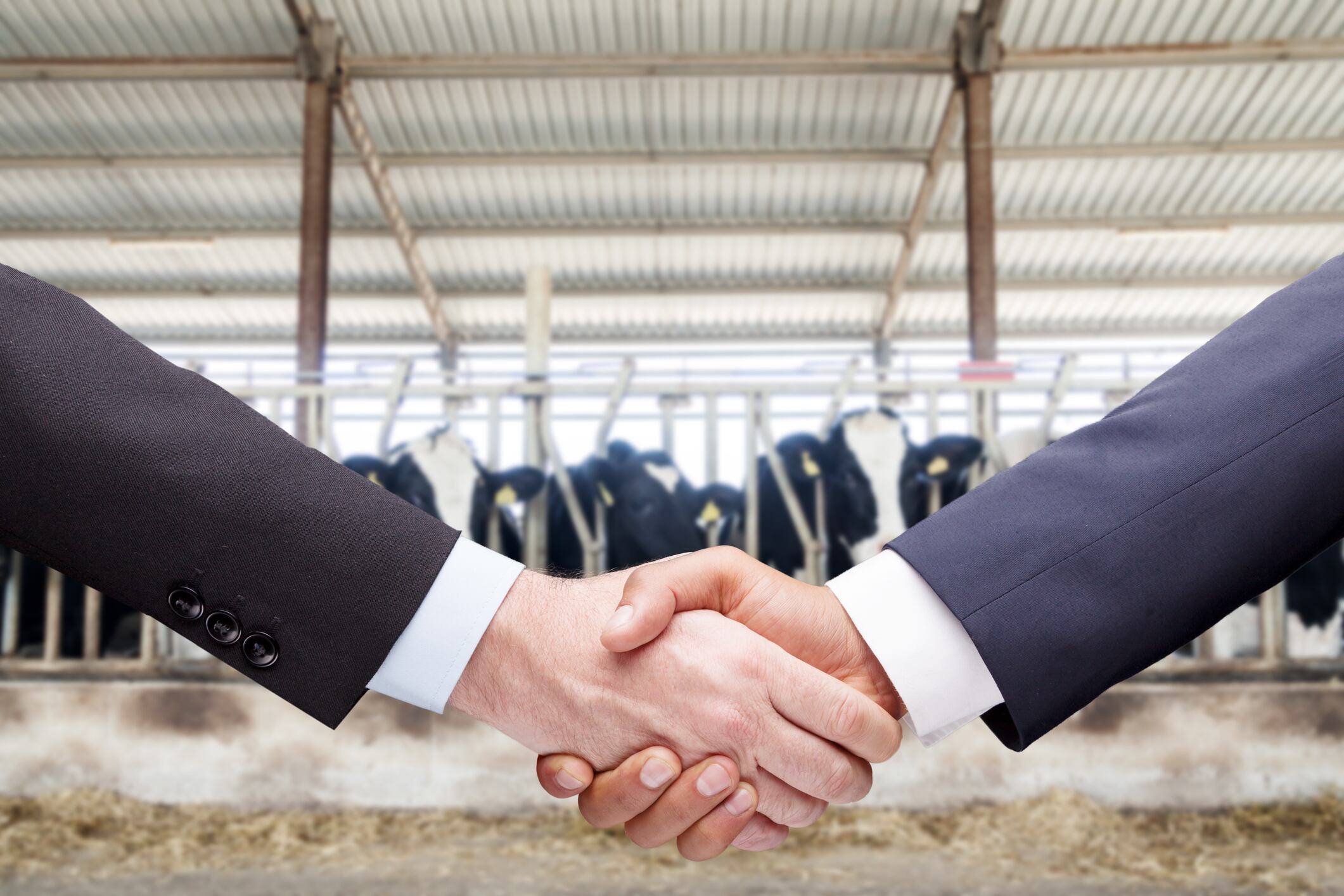As commercial director at Fairfields Farm, where we grow potatoes and cook our crisps, I’m actually a bit of a farming outsider. Although I’ve lived in rural Suffolk for most of my life, the tractors on the roads were mere curiosities (and, yes, sometimes nuisances) before I joined Fairfields just over four years ago.
These days, I am lucky enough to see the true ‘fork to fingertips’ journey of our products as well as the intense pressures our farming community faces from all angles.
It is apparent to me that Britain is on the precipice of a food security nightmare that we’re going to struggle to wake from if we don’t reprioritise British food production – and fast. As a nation, we only produce about 60% of the food we consume – a figure which has dropped from nearly 80% in the 80s.
Of course, some of that will be because of our ever-evolving global tastes (good luck growing bananas in Essex), but too often, I’m scanning a supermarket shelf and seeing apples, cauliflowers and even potatoes from overseas. All of this should be available, all year round, from British producers.
What’s causing the problem?
It’s a common refrain in farming: Food shouldn’t be this cheap. But cost of living is high, competition is stiff, and produce is treated as a commodity with spot-buying and huge contracts which turn on how low you can go on pricing. Price wars rage while cost battles are constantly hurling themselves at farmers; energy, fertiliser, labour, post-Brexit fallout… they rarely deliver good news for the profit margin. And that’s the shortened version of the list without getting into the weeds of the recent sudden withdrawal of funding for sustainability initiatives.
Add to that the long-term nature of farming: At Fairfields Farm, we need to buy enough seed in the latter months of the year, that will get planted in spring and then harvested in late summer and autumn and then last to the next summer. So we need to have a good idea 18 months out of how many potatoes we will need. Aside from requiring Nostradamus levels of prediction, one large stray contract coming in or leaving can present a huge risk.
Throw in weather uncertainty and an influx of cheap produce from abroad where subsidies are higher and standards lower, and it’s no wonder so many UK farmers just call it quits and decide that wheat field would be better off as a housing estate. If Jeremy Clarkson has done anything for this nation, it’s to highlight the blood, sweat and tears that can go into farming operations just for the year’s takings to go down the drain. And when that farmland is turned into something else because it’s so difficult to make ends meet? And when the skills and the engineering know-how are gone? Well, they’re not coming back. British farming is very much ‘use it or lose it’.
...But do the public care?
Yes, absolutely. We care an awful lot. I spoke to Clare Otridge of Grounded Research (and a certified Genuine Farmer’s Daughter), who has been immersing herself and her team in understanding both farming and how the public feels about it.
Last year, Clare undertook research for farming charity RABI’s Public Sentiment Report and found that an overwhelming 95% of respondents agree that supporting British farmers is important. The appeal cut across age, region and locale; it doesn’t matter if we’re in the middle of London or in the Outer Hebrides, we grasp the importance of growing food.
Clare told me: “Consumers consistently described British farmers as hardworking, local, essential, and – notably – underpaid and undervalued. Buying British clearly carried deep emotional resonance, even among those with no direct connection to agriculture.”
There are also less lofty reasons the public prefer British, too: Freshness and quality perceptions are higher, and consumers have higher levels of trust in ethical standards and environmental care, with over half of research respondents believing that farmers are actively contributing positively to environmental and climate goals.
That’s a well-founded belief, by the way; at Fairfields Farm we take part in both Red Tractor and LEAF schemes, which set high standards for environmental stewardship, and this practice is widespread and often expected of retailers when buying British. These do, however, come with audits and inspections and, therefore, cost.
The public aren’t foolish either. If Trump’s tariffs or Putin’s warmongering have taught us anything, it’s that global supply chains can fracture in an instant. If the wrong people fall out, or a changing climate makes Spain decide they will actually keep their own tomatoes, thank you very much… then our very ability to put food on our tables is put at unacceptable risk. The preservation of productive agricultural land has to be a top priority, and the public recognises that.
So we think it’s important - but do we act accordingly?
Not as much as we think, sadly. Clare’s research has consistently shown that we overestimate how much British produce we purchase, each of us believing we are supporting our nation’s farmers much more than we actually are. Ouch. My confession? Too often even I’m putting things in my basket that aren’t British grown, because my heart is set on making Meera Sodha’s Cauliflower Korma and I’ve been trained, like everyone else, to believe I should have access to a complete array of produce at all times, and my brain doesn’t comprehend that what should be readily available in the UK might not have come from here.
How can food manufactures help?
The only way to bridge the sentiment/action gap is to literally bake Britishness into production, at all levels.
Given the huge public love for British-grown, British-produced goods, I believe there is actually an untapped opportunity for food manufacturers. Yes, by buying Red Tractor broccoli from Bob in Bristol (or potatoes from us in Essex!) you might be adding a bit of cost compared to foreign sourced goods (that don’t necessarily have to meet the same standards and add to overall environmental impact). However, you will be sourcing quality, contributing to the future of British farming, and – being blunt - you will likely be able to negotiate a price premium for the added credentials of those products.
This needs to extend beyond produce and into processed food. When I’m perhaps buying a pre-packed korma instead of making my own, I want to be supporting British producers through supporting manufacturers that prioritise British, creating demand for and contributing to a stabilisation of our food security. And, yes, I will see the messaging on pack about sourcing and feel warm and fuzzy about my decisions.
At Fairfields Farm we make much of our homegrown-ness and the fact that our co-founder Robert is an active, engaged and present farmer. It excites retail and wholesale buyers and we have overwhelmingly felt the support from all levels when we get the story right. I’ve seen it work.
There is such a huge opportunity for storytelling and premiumisation through Britishness for food manufacturers, and I truly believe there is even money to be made – and not lost – in the endeavour. The British public have set their expectations – they want to buy more British, they want their own warm and fuzzy feelings – and our industry needs to step up to that demand.



